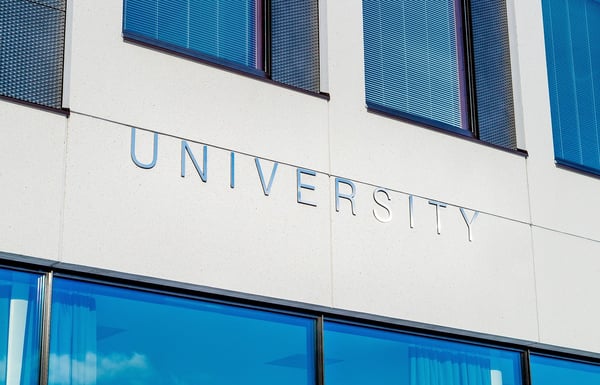
This paper will address the significant challenge of yielding a healthy ROI in the very particular context of telephone fundraising campaigns. With this ‘key performance indicator’ (KPI) increasingly being used to benchmark the success and effectiveness of a given campaign, what steps can campaign managers take to drive this all-important figure upwards?
Phonathons are, generally speaking, very expensive things to run. Leaving aside the time investment on the part of development and fundraising staff, by the time you’ve totalled up the basic costs of staff wages, consultants, phone calls and software, as well as the costs associated with stewardship, gift acknowledgement and so on, overall campaign spend can easily run into the tens of thousands of pounds or dollars.
Because of this, it is a relatively common occurrence that phone campaigns only narrowly break even on their initial investment, or even lose money. Such campaigns would, therefore, yield an ROI of one or less. In our opinion, it is this apparent ‘underperformance’ of phonathons that has given rise to trends such as using exaggerated 10-year counts for regular gifts (rather than counts based on actual data) as well the use of pledged gifts to inflate the overall fundraising total. But, happily, there are much better ways than these to transform your telephone campaign ROI.
This white paper will, therefore, introduce you to some of the key methods you should consider adopting to transform your overall campaign ROI. First and foremost, we will look at a number of ways to reduce the aforementioned campaign spend, before turning to some ideas that may assist you in increasing the total funds raised. In achieving either or both of these things, you will see an immediate transformation of your ROI.
Let us begin with the basics by addressing the question; what is ROI anyway? According to Investopedia, Return on Investment (ROI) “is a performance measure, used to evaluate the efficiency of an investment”. To calculate the return on a particular investment “the benefit (or return) of an investment is divided by the cost of the investment itself.” Therefore, if I spend £10 in order to generate £20, I yield a healthy ROI of two. However, if I spend £20 and only generate £10, I yield a much less appealing ROI of 0.5. If I break even, spending £10 to raise £10, my ROI would be one.
 I would say at this early stage that this paper is not to imply that ROI is the only, ‘be all, end all’ metric to determine the success of a given campaign. By way of illustration, a simple stewardship or thanking campaign may not yield any income, or ‘return’ on investment, at all. However, the hope in this instance would be that the initial investment would pay measurable dividends in future campaigns. This is where split-testing comes in, in order to measure the impact of an investment over the course of time.
I would say at this early stage that this paper is not to imply that ROI is the only, ‘be all, end all’ metric to determine the success of a given campaign. By way of illustration, a simple stewardship or thanking campaign may not yield any income, or ‘return’ on investment, at all. However, the hope in this instance would be that the initial investment would pay measurable dividends in future campaigns. This is where split-testing comes in, in order to measure the impact of an investment over the course of time.
However, that being said, ROI nonetheless provides an extremely useful yardstick for comparing and contrasting the relative success of individual campaigns. It inspires us to spend less in order to raise more, thereby encouraging us to maximise the return on our donor’s investment in our fundraising activity. Surely, this heightened sense of responsibility can only be a good thing in a climate wherein “fundraising is too expensive” has become a popular and legitimate objection to giving over the phone.
Let us now look at the issue from the donor’s perspective; would a campaign that only narrowly breaks even, or even fails to do so, seem like a sound financial investment? According to the statistics provided by Charity Choice, it would not. Of course, this view is overly simplistic because phone campaigns offer fantastic value not only in terms of the funds raised but in increasing participation, bringing on new donors, upgrading existing regular gifts and so on. However, donor perception is nonetheless an important consideration to keep in mind in terms of basic ‘value for money’.
 Lastly, in a climate in which we fear for the future of phone campaigns and telephone fundraising more generally, campaign managers will need to work harder than ever to justify their activity. According to the Council for the Advancement and Support of Education (CASE) “tightened budgets and other factors have fuelled an increased need to demonstrate the ROI for advancement operations”. This will drive an increased need to raise more bang, for less buck, thereby generating a better return on departmental, university or charity investment.
Lastly, in a climate in which we fear for the future of phone campaigns and telephone fundraising more generally, campaign managers will need to work harder than ever to justify their activity. According to the Council for the Advancement and Support of Education (CASE) “tightened budgets and other factors have fuelled an increased need to demonstrate the ROI for advancement operations”. This will drive an increased need to raise more bang, for less buck, thereby generating a better return on departmental, university or charity investment.
We are only ever as good as our last campaign, after all!
The winning recipe, in terms of ‘transforming’ your ROI, involves simultaneously reducing spend and increasing the fundraising total for your campaign. This is certainly achievable, however, for most campaign managers reading this paper, we would suggest simply focus on reducing your campaign spend. This is certainly the easiest way to see quick results in terms of ROI transformation. You may also be pleasantly surprised to find that your fundraising total remains more or less the same, despite the cuts in spend.
 Let us imagine then that you are able to half your overall spend, whilst raising the same amount of money as you did on previous campaigns. Very quickly, you will have transformed your campaign ROI, in fact, you will have doubled it. Looking at the alternative approach, if you want to achieve the same transformation of ROI solely by raising more funds, you would need to double the amount of funds raised. This is certainly not beyond the realms of possibility, with some creativity and ingenuity. However, I would tend to suggest that simply tightening your purse strings is the quickest and easiest way to transform your campaign ROI.
Let us imagine then that you are able to half your overall spend, whilst raising the same amount of money as you did on previous campaigns. Very quickly, you will have transformed your campaign ROI, in fact, you will have doubled it. Looking at the alternative approach, if you want to achieve the same transformation of ROI solely by raising more funds, you would need to double the amount of funds raised. This is certainly not beyond the realms of possibility, with some creativity and ingenuity. However, I would tend to suggest that simply tightening your purse strings is the quickest and easiest way to transform your campaign ROI.
Do keep in mind that on your first attempt to cut your campaign spend, you may end up raising a little less than in previous campaigns. This may be a natural consequence of making significant changes to your campaign architecture, or of trying something entirely new. However, as long as you’ve significantly reduced that initial spend, your ROI will still be looking considerably healthier than it did before. So, rather than focussing on your end total, keep your end goal in mind: maximising the return on your initial investment and, thereby, the efficiency and effectiveness of your fundraising efforts.
This part boils down to finding ways to reduce your initial investment in your telephone campaign. This involves not only reducing your existing financial spend but ideally the time you’re having to invest in running the campaign, too. Time is money, after all! So, the first thing to do is sit down and take a long hard look at your campaign finances. You will need to assess every aspect of your campaign spend. Can any of these costs be cut entirely? If not, can they be reduced in some way or scaled down over time?
In the UK marketplace, heavy reliance upon fundraising consultants offers a convenient, if very expensive, way of running phone campaigns. In this particular context, an excellent way of reducing your campaign spend is to pull up your sleeves and do some good, old-fashioned ‘DIY’. That’s right. It’s time to start thinking about any aspects of your campaign that you may be outsourcing and whether you could be doing them yourself. Whilst bringing your campaign in-house, in part or entirely, represents a big, brave step for many universities, the results (in terms of ROI) can be quite astonishing.

If you’re already running all or part of your campaign in-house, then, we would still suggest going about a thorough compare-the-market exercise. This will ensure you are getting the maximum return on your investment, in terms of; consultant contributions; campaign software; mailing houses; creative agencies and so on.
Furthermore, alternative approaches such as moving from desk phones and line rental to VoIP or computerbased ‘soft’ phones, can also offer novel opportunities to significantly reduce spend.
Additionally, moving from letter-based stewardship towards more efficient, environmentally friendly emailing can also offer huge savings in terms of both time and money. Platforms like VanillaSoft allow you to automate the sending of highly personalised stewardship pieces as your callers go through the process of resulting and actioning their calls. This reduces the time investment required on the part of the campaign manager ‘the morning after the night before’ and also significantly reduces the costs associated with printing and posting hundreds if not thousands of individual letters and stewardship packs.
 There are many challenges facing university telephone fundraising. Some of these are unique to higher education, whilst others are very much shared by the charity sector. In the university sector, there is a pandemic problem of ‘bad’ or out of date data. This is to say that many alumni do not update their information after leaving university, resulting in many calls going out to now elderly parents of long-standing alumni. Therefore, a data cleansing exercise or a campaign specifically targeted around gathering up-to-date information can become a necessary step to improve contact rates.
There are many challenges facing university telephone fundraising. Some of these are unique to higher education, whilst others are very much shared by the charity sector. In the university sector, there is a pandemic problem of ‘bad’ or out of date data. This is to say that many alumni do not update their information after leaving university, resulting in many calls going out to now elderly parents of long-standing alumni. Therefore, a data cleansing exercise or a campaign specifically targeted around gathering up-to-date information can become a necessary step to improve contact rates.
 Beyond this, in charity and higher education sectors alike, donor disengagement is rife. According to the Fundraising Effectiveness Survey Report, donor retention has become increasingly weak over the last ten years, now averaging less than 45% annually. Donors have the sense of ‘only being contacted for money’ and are often reluctantly taken through the same tired script year after year. This prompts them to ask fundraisers to simply ‘cut to the chase’ or, worse, to ask not to be called again. The picture is, therefore, one of ever-increasing ‘opt out’ rates, with the ‘do not call’ list growing campaign on campaign.
Beyond this, in charity and higher education sectors alike, donor disengagement is rife. According to the Fundraising Effectiveness Survey Report, donor retention has become increasingly weak over the last ten years, now averaging less than 45% annually. Donors have the sense of ‘only being contacted for money’ and are often reluctantly taken through the same tired script year after year. This prompts them to ask fundraisers to simply ‘cut to the chase’ or, worse, to ask not to be called again. The picture is, therefore, one of ever-increasing ‘opt out’ rates, with the ‘do not call’ list growing campaign on campaign.
So, with what little data we have available to us, how do we ensure that we are getting the best return on our investment in our remaining prospects and donors? The first, important step will be to improve our donor and prospect engagement strategies. This will drive up the quality of existing data over time as well as the response rates for any future ‘opt-in’ requests. Simultaneously, a concerted effort to improve the prospect experience will improve fundraising outcomes, whilst curbing the rate of ‘opt-outs’ and ‘do not calls’. So, everyone is a winner when it comes to improving engagement, but how do we do it?
Improving prospect and donor engagement is now crucial for the future of telephone fundraising. According to Eden Stanley’s forward-looking report ‘Public Engagement in 2022’, donor interactions will need to become increasingly ‘responsive, personalised and authentic’. In the specific context of phone campaigns, this will force us to diversify our approach, try new things and most importantly; to personalise our telephone outreach to the maximum possible extent.
 According to UK Fundraising, in relation to how telephone fundraising is perceived, ‘memorable’, ‘personalised’, and ‘relevant’ are amongst the top attributes that people associate with this medium. In order to deliver on these expectations, you may want to consider allowing your fundraisers to move away from the script or to come up with their own cases for support. This will give the call a much more authentic feel, allowing them to put their own unique stamp on the call and necessarily making the call more personal and memorable. You’ve hired these callers for a reason, so give them some free reign to personalise and improve the prospect experience on your behalf.
According to UK Fundraising, in relation to how telephone fundraising is perceived, ‘memorable’, ‘personalised’, and ‘relevant’ are amongst the top attributes that people associate with this medium. In order to deliver on these expectations, you may want to consider allowing your fundraisers to move away from the script or to come up with their own cases for support. This will give the call a much more authentic feel, allowing them to put their own unique stamp on the call and necessarily making the call more personal and memorable. You’ve hired these callers for a reason, so give them some free reign to personalise and improve the prospect experience on your behalf.
Donor engagement with telephone fundraising, as well as their perception of that medium, has actually improved in recent years. Whilst response rates to door drop and direct mail are in decline, telephone response rates remain consistently strong. According to Tony Charalambides, Managing Director of Listen Fundraising, this is in large part due to “how much more memorable, personalised and relevant the fundraising calls have become”. Therefore, take care not to allow your phone campaign scripts to stagnate and become familiar with your prospect and donor pool. Instead, be sure to refresh your scripts with targeted, relevant information for each new campaign that you run, allowing you to consistently deliver something “different, new and interesting”.
In the specific context of higher education fundraising, it’s also essential that you’re able to offer concrete value to your alumni as part of these calls. This is to say that the ‘ask’ should not be the sole purpose of the call. Instead, you may also want to be verifying contact information, updating consent preferences, sharing news and information about the university; recent successes, upcoming events and alumni benefits that they may not be aware of. This erodes the sense of “only being called to ask for money” and increases the sense of ‘give and take’.
 As above, it’s also worth giving your stewardship pieces and information packs a refresh. As with scripting, receiving the same tired information packs year after year will foster disengagement in just the same way as dragging them through the same tired script year after year. There are many fantastic creative agencies that specialise in creating beautiful, uplifting stewardship packs, which can be sent out in digital or hard copy as part of the campaign. Make sure to include powerful case studies to uplift and inspire your prospective donors, as well as to thank those that have donated and connect them with their cause.
As above, it’s also worth giving your stewardship pieces and information packs a refresh. As with scripting, receiving the same tired information packs year after year will foster disengagement in just the same way as dragging them through the same tired script year after year. There are many fantastic creative agencies that specialise in creating beautiful, uplifting stewardship packs, which can be sent out in digital or hard copy as part of the campaign. Make sure to include powerful case studies to uplift and inspire your prospective donors, as well as to thank those that have donated and connect them with their cause.
Finally, aligning your phone campaign stewardship pieces (emails and letters) with wider university branding can really improve the professional feel of a campaign. This inspires confidence on the part of the donor and allows your phone campaign outreach to appear more consistent with the rest of your direct marketing activity. For example, using tailored headers and footers with university branding logos, possibly personalised to the chosen fund area, as well as social media links, can all improve the overall donor experience in a meaningful way.
As before, improving the quality of your data will be an important first step in driving up contact rates. Beyond this, moving from desk phones and manual dialling to soft phones with auto-dialling can also eliminate the scope for manual error in punching in phone numbers. Furthermore, we’d recommend taking the time to gather contact preferences and the care to abide by them. Although this will inevitably reduce the size of your overall prospect pool, stripping your data set down to those that genuinely want to be contacted by phone will significantly improve your contact rates.

According to JustGiving, there’s no substitute for asking your supporters about their preferences, in terms of; “how they like to support, what they wish to receive from you, what they like about the way you communicate with them – and what they don’t.” Therefore, take care to engage with your donors through their chosen means of contact, at their chosen frequency, regarding their preferred topics or fund areas. If they like the phone, call them. If they want to be called every other year, try your best to accommodate that. If they have a proven interest in supporting students and scholarships, don’t pitch them research projects. Let your prospects and donors lead the way and the result will follow.
Beyond this, modern technologies can really give you the competitive edge when it comes to driving up your contact rates. Many software tools now use artificial intelligence to determine which contact or prospect may be most likely to answer the phone and when. In the specific context of VanillaSoft, this will be based on prior call history and proven engagement with emails and stewardship pieces sent out as part of the campaign. Additionally, such tools will also allow you to dynamically move between priority segments, prioritising those that are most likely to engage with your calls at certain times.
Amid claims that ‘telephone fundraising is dead’ and that the future of the medium is in peril, you may be surprised to learn that according to SOFII (Showcase of Fundraising Innovation and Inspiration) telephone fundraising response rates are still ten times higher than response rates to direct mail. Therefore, campaign managers must continue to draw upon the inherent strengths of their medium; the ability to offer a truly personalised approach, as well as an authentic, memorable, human-to-human engagement opportunity.
 Improved conversion rates will come as a natural consequence of improving donor engagement. Therefore, please refer back to the above paragraphs on improving donor engagement in this regard. You will find that in simply investing time and effort in improving the donor experience of your phone campaign, you will massively boost overall participation and giving. Indeed, your prospects and donors will be quick to recognise and reward your efforts to improve their experience, so make the effort and trust that the results will follow.
Improved conversion rates will come as a natural consequence of improving donor engagement. Therefore, please refer back to the above paragraphs on improving donor engagement in this regard. You will find that in simply investing time and effort in improving the donor experience of your phone campaign, you will massively boost overall participation and giving. Indeed, your prospects and donors will be quick to recognise and reward your efforts to improve their experience, so make the effort and trust that the results will follow.
With that said, as much as your efforts in terms of scripting, personalisation and stewardship will impact upon your results; your callers have the lion’s share of responsibility. Therefore, invest as much time as you can spare in recruiting the right team for the job; look for those with prior experience of fundraising, a passion for public speaking or debating, perhaps a background in customer service or call centre type work and so on. We suggest that you should be spending as much time considering your ‘star fundraiser’ prospect profile as you do your ‘star donor’ prospect profile, on the basis that your fundraising campaign can only ever be as impactful as your fundraisers.
Whilst the idea of conducting a full week of 30 or 40 one-to-one interviews may seem particularly daunting or off-putting, I can assure you that there is no better way to identify the students that will be best suited to delivering the university’s fundraising message. We would recommend having them research and prepare a case for support, then taking them through a mock phone call to see how they perform under pressure. The more rigorous your recruitment process, the stronger your team will be on the phone.
 Equally, post recruitment, proper caller training is critical. Treat your student fundraisers as true professionals and engage with and train them as you would any other staff in your development or alumni team. These people are going to be front-line ambassadors for your causes, tasked with one of the most difficult jobs in fundraising, so it’s vital that you equip them with all the tools and knowledge that they need to succeed. The right fundraisers, equipped with the right training and guidance, supported by the right software tools and materials, represent your one-way ticket to maximised conversion rates.
Equally, post recruitment, proper caller training is critical. Treat your student fundraisers as true professionals and engage with and train them as you would any other staff in your development or alumni team. These people are going to be front-line ambassadors for your causes, tasked with one of the most difficult jobs in fundraising, so it’s vital that you equip them with all the tools and knowledge that they need to succeed. The right fundraisers, equipped with the right training and guidance, supported by the right software tools and materials, represent your one-way ticket to maximised conversion rates.
One further way to breathe new life into your phone campaign is to try new approaches. This is popularly referred to as the ‘diversification’ of your phone campaign. This is to say that rather than dragging the same domestic donor and non-donor segments through the same standard phone campaign, look to change things up by calling your new segments and constituencies, and running different types of calling campaign.
A great example of this is taking your phone campaign international. CASE recognise international fundraising as an “essential component of a highly successful development program”. With many universities now choosing to establish overseas advancement offices, telephone campaigns offer an efficient and cost-effective way to engage with international alumni markets.
Whilst you may have virtually exhausted the opportunities within your domestic alumni pool, most universities are now blessed with a very multinational alumni base. According to The Guardian, the UK and US are the highest receivers of international students worldwide. This offers the opportunity to engage with new constituencies who are much more likely to welcome your call. Anecdotally, a recent instance of a student fundraiser reported that a prospect from Singapore was so thrilled to have received a phone call from the university that he had said he felt as though he had “won the lottery”.
Indeed, our own experience of calling into both the US and Asia is that overall alumni engagement is fantastic, participation rates are excellent and, the average gift is also exponentially higher than it was within our domestic alumni pool. We also found that those international alumni that pledged to donate, overwhelmingly followed through with those pledges, unlike their domestic counterparts. So, cast your net out a little wider and see if you can find those prospective donors that may, in fact, be eagerly awaiting your call!
Many charities and some forward-thinking universities are now integrating text-giving into their telephone campaign approach. For example, once you’ve tried and failed to reach someone by phone call a certain number of times, you may opt to send them a text, giving them the opportunity to donate that way instead. Particularly with respect to younger alumni and donors, this approach has proved both popular and successful. Given that 99% of text messages are opened and read within the first five minutes after they’re sent, it’s easy to see why.
 Running concurrent, diverse campaigns is also a fantastic way to reduce costs. On one occasion, we ran five campaigns concurrently; calling Asia in the morning, conducting ‘Gift Aid’ and Upgrade calls in the afternoon, before calling our UK alumni in the early evening followed by US and Canadian alumni later in the day. This approach often works out to be more efficient than running the campaigns separately and allows you to combine costs pertaining to things like software, for example. However, be advised that this approach is not for the faint-hearted campaign manager.
Running concurrent, diverse campaigns is also a fantastic way to reduce costs. On one occasion, we ran five campaigns concurrently; calling Asia in the morning, conducting ‘Gift Aid’ and Upgrade calls in the afternoon, before calling our UK alumni in the early evening followed by US and Canadian alumni later in the day. This approach often works out to be more efficient than running the campaigns separately and allows you to combine costs pertaining to things like software, for example. However, be advised that this approach is not for the faint-hearted campaign manager.
Finally, by way of illustration, the most successful campaign we ever ran (in terms of ROI at least) was the afore-mentioned ‘Gift Aid’ campaign. We referred to it as a ‘mop up’ campaign, mopping up Gift Aid consent where it was absent in respect of our previous donors from years gone by. Having been rolled together with a number of other campaigns, the total spend on this particular campaign was just £1,776. This very small-scale campaign allowed us to gain access to some £24,620 in Gift Aid, thereby yielding an extremely appealing campaign ROI of 13.86. You can thank us later on this one!
The role that the right software tool can play in transforming your telephone campaign ROI is not negligible. Therefore, as part of the aforementioned ‘compare-the-market’ exercise, take a serious look at the value that your existing software is bringing to your campaign. It should be more than a simple calling interface. Instead, it should be the very backbone of your campaign, the glue that holds it together and the engine that propels its success. Listed below are some of the many benefits that the right software tool could bring to you and your campaign.
The growing Software as a Service (‘SaaS’) space has opened up the tele-fundraising software marketplace, with new vendors offering increasingly competitive pricing for ‘software only’ campaign arrangements. Pricing varies significantly between vendors so you may be surprised by the savings you can make in moving to an alternative software provider.
Particularly in the context of stewardship; automating the sending of gift confirmation and thanking pieces, as well as information packs and other materials, can save you huge amounts of time as well as money. Additionally, in moving away from manual letter and email sending, you can allow your campaign software to do more of the campaign legwork for you.
 C. Reduce Ramp Up and Training Time
C. Reduce Ramp Up and Training TimeIn crafting a software tool around the specific needs and requirements of your team, you can significantly reduce the cost (in terms of both time and money) associated with caller ramp up and training. This is because the right tool can be designed such as to effectively eradicate the need for software training, leaving you more time to focus on more important things and your callers one less thing to worry about.
The right software will not only allow you to automate your outreach and stewardship but can also allow you to personalise and tailor your engagement activity to a much greater extent. For example; dynamic scripting can offer variable messaging based on the particular segment or constituency with whom you are engaging, and fund-specific stewardship pieces can be sent out based on particular call outcomes or areas of interest identified over the phone.
Modern calling software also gives managers absolute control over the frequency and persistency with which donors and prospects are being called. Software can therefore be used to automate the application of your university best practices in terms of follow up, whilst also ensuring that none of your prospects are being under (or over) worked throughout the course of your campaign. Intelligent workflow automation can also be used to ensure that no opportunity is missed or forgotten, whilst eradicating problems associated with ‘cherry picking’ and data-burn.
Highly customisable, ‘project-based’ software tools are generally much better suited to the running of diverse, concurrent telephone campaigns. This flexibility allows you to use the phone to better serve the wider interests and initiatives of your college or university (increasing the overall value of the phone campaign), whilst also allowing you to run and conduct concurrent campaigns in a more efficient way.
As mentioned above, modern technologies now draw upon artificial intelligence in order to drive up your contact rates. Intelligent calling software of this nature is able to look at prior engagement in order to determine which prospects are most likely to pick up the phone, and when, ensuring you’re always calling the right prospect or donor, at the right time.
 H. Increase Conversion Rates
H. Increase Conversion RatesIn allowing you to personalise and improve the experience of your prospect pool, whilst simultaneously driving up your contact rates, the right software tool will necessarily drive up your conversion rates. It will also give you, the campaign manager, greater ownership and control over your campaign activity, thereby allowing you to be responsive, reactive and creative. This is turn allows you to continuously hone, refine and improve your campaign approach in order to deliver ever-better results over time.
Finally, in allowing you to do all of the above. The right software tool can have a truly ‘game-changing’ impact on your campaign ROI. On this basis, we urge you not to underestimate the role that your choice of software has in driving and ensuring your campaign’s success. Therefore, don’t be afraid to make a brave leap into the unknown, as you may be surprised by the far-reaching impact that one change may bring about.
As discussed in the first part of this paper, of course, the value of the phone campaign extends far beyond the total funds raised. Therefore, whilst ROI is a fantastically useful metric to allow you to measure the efficiency and effectiveness of a campaign in financial terms, there are a whole host of other metrics which can reveal the success and impact of a campaign. Additionally, beyond the numerical, the phone has many useful roles to play.
Part and parcel of the new, personalised approach to phone campaigns recommended in this paper, is the ability to use your campaign to serve wider departmental or university initiatives. SOFII praise the flexibility of the phone in terms of its ability to be “integrated seamlessly alongside any other channel, across all types of campaign”. Hence, don’t let your phone campaign operate within a box, instead allow it to evolve and use it creatively to serve diverse purposes and initiatives.

By way of examples, perhaps the department is keen to introduce alumni to the idea of legacy giving and so some legacy messaging can be introduced, with an opportunity to register those who may be interested to find out more. Perhaps the alumni team are trying to improve event attendance or want to increase participation in volunteering, mentoring or speaking opportunities. Possibly there is a need for a short survey to be completed on a particular topic amongst a representative group of alumni, and so on and so forth. So, another way to ensure the future of your phone campaign is to allow it to serve the wider department and add concrete value above and beyond the financial.
Equally, looking beyond ROI, which is the subject of this particular paper, there many other important metrics which represent popular indicators of phone campaign ‘success’. These include, but are not limited to; overall participation level, average gift, conversion rates, contact rates and percentage of positive versus negative outcomes. These all represent hugely important metrics and can certainly point you towards the success and effectiveness of any changes that you may be making to your phone campaign strategy.
Finally, the phone remains a uniquely powerful tool in the context of bringing on new donors, increasing participation and upgrading existing regular givers. According to SOFII, there are no better ways to achieve these things than via the phone. Similarly, as stated by UK Fundraising, there is a particular level of personal engagement that can only be achieved by phone. So, do not neglect to consider the wider value of the phone campaign to your university or college, beyond the end total of funds raised.
So, for those of you that have opted to skip straight to the closing remarks (!), as well as for those of you that have been with us from the beginning and are now looking for some key action points from what you’ve read so far…. Here is your all-encompassing checklist of the essential steps to take to improve your telephone campaign ROI.
1. Conduct a Thorough analysis of All Your Existing Phone Campaign Spends
Make sure to include absolutely everything as all costs, large and small, should be feeding into your final campaign ROI. Make sure to go beyond the obvious in conducting this analysis and avoid the temptation to conceal or exclude any associated costs that you may uncover. By way of example, less obvious campaign expenditures may include caller incentives and treats, your end of campaign party, spends with creative design agencies, mailing houses and so on. Tackle all your costs head-on, rather than shying away from them.
2. Identify Any Costs that Could be Either Reduced or EliminiatedThis may involve bringing your campaign in-house, in whole or in part, thereby allowing you to minimise the spend associated with outsourcing various aspects of your campaign. For anything you can’t do yourself (due to experience or staff capacity), as well as for unavoidable costs such as line rental and call charges, make sure to do regular ‘compare the market’ exercises, allowing you to continuously review the value for money that you’re getting from each of your providers and partners. Equally, think creatively about harnessing the power of new technologies to save you both time and money in conducting your campaign.
This will allow you to save huge amounts of both time and money, whilst also increasing the value of your chosen campaign software tool by allowing it to work harder on your behalf. In addition to the aforementioned savings, opting to use email for all alumni with access to an email address offers greater professionalism and timeliness of contact when it comes to sending out fund information and gift confirmations.
 4. Reflect Upon Steps You May Need to Take to Improve Your Contact Rates
4. Reflect Upon Steps You May Need to Take to Improve Your Contact RatesA first step here may be to conduct a targeted data cleansing and refresh effort. You may also want to try calling more recent alumni, for whom the contact information is more likely to be up to date. Equally, you could try calling new segments and constituencies, who may be more likely to pick up the phone and engage with your call. Finally, consider drawing upon artificial intelligence to ensure you’re calling the right alumni at the right time, never missing an opportunity to engage.
Think long and hard about the specific value that your chosen software tool is bringing to your campaign, on the basis that the right software will represent the backbone, or solid foundation, upon which your new and improved phone campaign can be built. Additionally, the right software can and will assist you in bringing about many of the aforementioned changes, whilst also giving you a much a greater sense of ownership and control over your campaign.
In particular, it is becoming increasingly important to personalise your phone campaign approach to the prospect or donor in question as well as to find new ways to bring value to your alumni over the phone. In this regard, refreshing your scripts and other associated campaign materials offers a quick and easy way to breathe new life into an otherwise tired phone campaign. These simple steps should eliminate the sense of ‘only being called for money’ and lessen the repetitive, predictable feel of your campaign.
 7. Repeat This Review Process on a Regular Basis
7. Repeat This Review Process on a Regular BasisThe tele-fundraising environment is ever-changing, and so we cannot be complacent, in allowing our campaign approach to stagnate and tire. Instead, the phone campaign should be reviewed and refreshed as often as time allows, to ensure that we’re always putting our best call forward.
Given that we’re only ever as good as our last campaign, we urge you to use your pursuit of an improved ROI not only to minimise your spend and maximise your fundraising total but to improve the overall quality of your phone campaign outreach. As campaign managers, we must not allow ourselves to be complacent. Instead, we should treat every campaign, every shift and every call as an opportunity to improve. On this basis, every touch point represents an opportunity to obtain valuable feedback and learning, thereby informing changes you may wish to make to the next campaign, shift or call.
If your pursuit of an improved ROI motivates you to bring all or part of your phone campaign in-house, then use that as an opportunity to rethink the way you currently conduct campaigns at your university. Ask yourself; how can my telephone campaign approach be given a facelift? How might I surprise, or even delight, my prospects and donors such that they might look forward to our calling again in future? In sum, how could we be doing this better?

In our opinion, the best way to improve your campaign ROI is to allow yourself to be continuously motivated by the need to hone and refine your campaign approach. In doing so, you will find that you become relentless; not only in your search for new ways to reduce spend and improve donor experience but in your search for new ways to improve the value the phone campaign can bring to your university, as well as to your alumni and donors.
So, prepare yourselves to take a long hard look at your phone campaign. Be aware that you may find that the time has come to burn Rome to the ground, and rebuild it from the ground up. However, should this be the case, for all or part of your campaign, then treat this challenging exercise as an exciting opportunity to refine and improve each aspect of your telethon approach. For it is in this meticulousness and attention to detail that true gains in ROI can and will be found.
Why are some schools having so much trouble getting a good return on their fundraising investment? In the US, the institutions receiving the most funding represent less than 1 percent of colleges. Worse, the proportion of money those schools receive keeps on growing.
It's time to take a look at your current process and determine if you're using the right channels. Did you know that you can get a 34% higher response rate using the phone?
Watch this video to learn:
I am extremely impressed with how easy it was to get started and train my marketers on the VanillaSoft solution. As well, I had a lot of flexibilityon how I wanted this program to run for our company. Plus, customer service is EXCELLENT at VanillaSoft. I highly recommend VanillaSoft to anyone!

Jody Weinberg J Telecommunications
We have never been so successful. Since we started using VanillaSoft we have increased productivity by 175%! Also, working with the VanillaSoft team has been an incredible experience. They helped us customized our campaigns and page layout to fit our unique needs.

Lauren E. Siegel Hillel Michigan